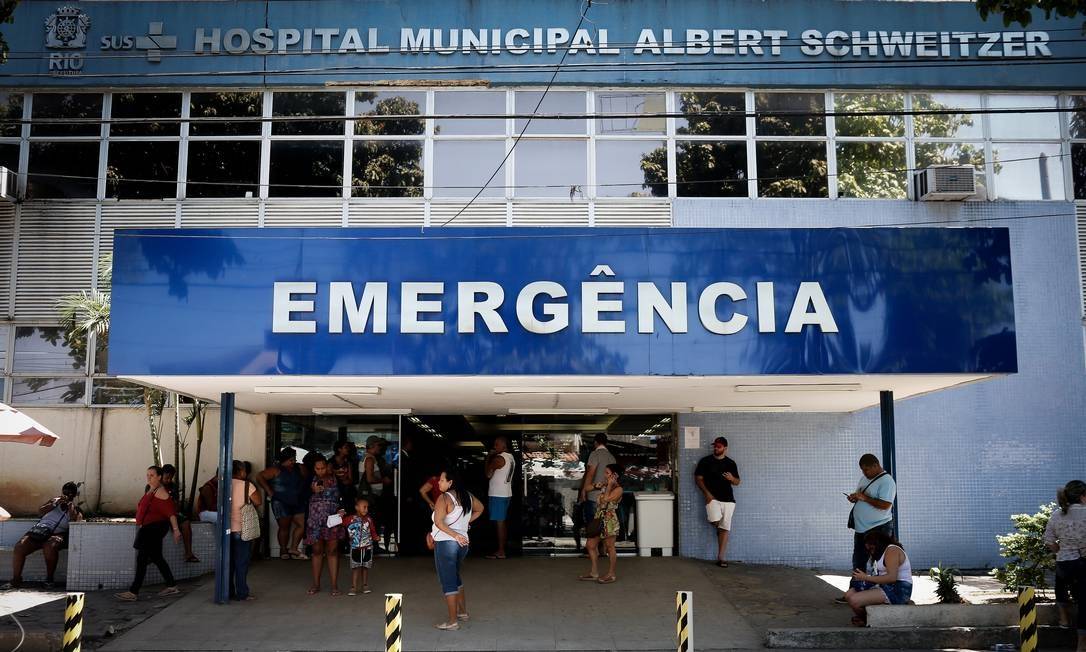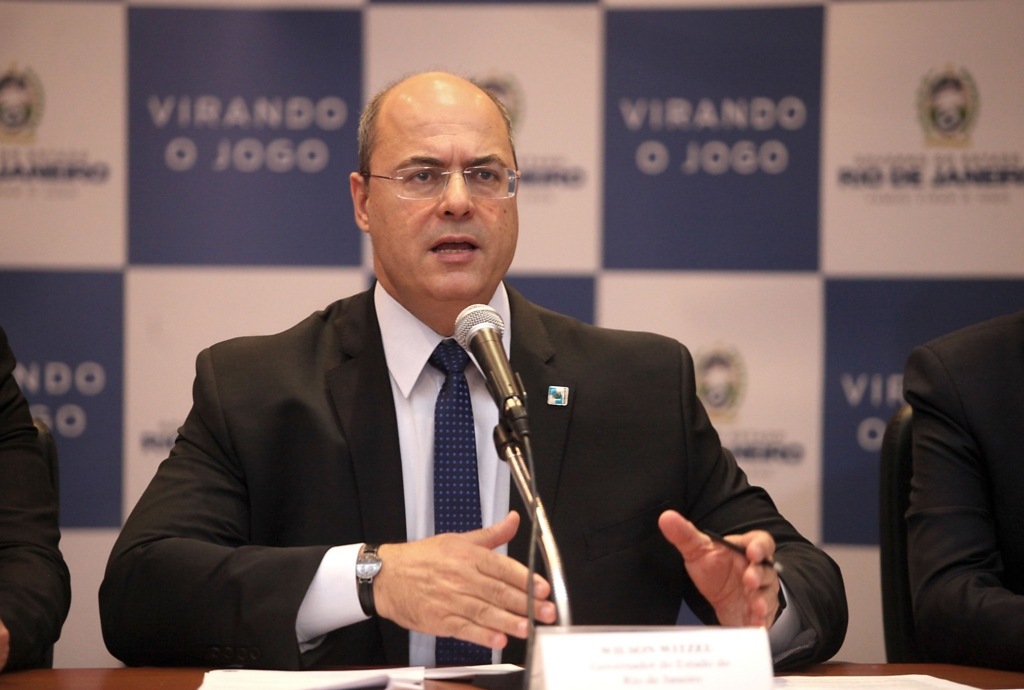RIO DE JANEIRO, BRAZIL – As if dealing with exhaustive shifts and the risk of contamination were not enough, health professionals in Rio de Janeiro are also struggling with a number of issues that include late payment of wages during the Covid-19 pandemic.

Fights over protective equipment that is often inadequate, wrong paychecks, reduced resting hours, and staff shortages in crowded patient rooms, are but a few items on the list.
Completing this scenario there are doctors and nurses going to work despite being symptomatic for fear of losing wages and improvising solutions to the lack of public resources, in addition to those who have been away from their families for more than a month.
Doctor Pedro (fictitious name) realized this last week when he experienced a shooting while deciding what to do with patients lacking oxygen at the Manguinhos family clinic. “I thought: it looks like Italy. But reality reminded me that this is not Italy. There are other things besides Covid that turn our drama into something much greater,” he says.
The wage backlog is the reality of at least three statewide UAPs (Emergency Room Units) in the capital city neighborhoods of Copacabana, Botafogo, and Taquara. Payment for the last 50 days worked should have been deposited on April 20th, but nothing has been paid to date.
Faced with uncertainty, doctors “announce” their plans in a group of Whatsapp: “UPA Copacabana, tomorrow 29/4, 12 noon, red room. Anyone interested?”, someone asks in a message. As they are hired as PJs (legal entities), they only earn their salary when they work.
Reports of professionals who continue to do their jobs despite symptoms of Covid-19 have also been common, in order not to lose wages or to have deductions for absenteeism.
“Yesterday, a doctor came to work with symptoms, dyspnea (shortness of breath), coughing […] so as not to lose the 80 percent allowance we have on our salary. […] She had no mask for at least two hours, walking around the unit […]. Stress at its highest level,” writes a doctor from one of the Baixada Fluminense outlying suburbs.
While some do not get paid, others get paid incorrectly, like family clinics in the south zone and in areas of the north zone (Maré, Alemão, Penha, and Madureira). In a unit in the Rocinha favela, the salary was between 25 and 30 percent lower, and some nurses and technical staff have already been absent due to delays in receiving their food and transport vouchers.
There, doctors have even had to teach untrained cleaners to sanitize. “Between attending to patients, setting up tents, printing documents (on sheets already used because there are no blank sheets) and trying to organize ourselves with colleagues getting sick, we need to stop and train the cleaning ladies,” says one of them, adding that more than half of them have already fallen ill.
The lack of personal protective equipment (IPEs), which has been criticized since the onset of the pandemic, has even led to fights between the various sectors of hospitals. “There is a great deal of conflict among colleagues, saying that they are not going to walk into the room [to attend patients with Covid],” says Luciene da Silva, 47, a nurse at the Federal Hospital of Bonsucesso.
“The X-ray technician says he wants a mask, but nursing doesn’t have one for everyone. The company that hires the stretcher-bearers isn’t supplying either. The stretcher-bearers are refusing to carry patients because they don’t have any equipment,” she says.
And even when the staff gets the PPE, its quality is doubtful. Several units complain about the thickness of aprons, which should be waterproof, but are not. A nurse technician at the Federal Hospital Cardoso Fontes poured alcohol on the fabric and took a picture showing that the liquid penetrates it.
These flaws contribute to the high number of infections. Another 2,200 health professionals have been furloughed due to suspected or confirmed disease in the Rio de Janeiro state and municipal networks. Fifteen nurses and technical staff and 11 doctors had died in the state by Tuesday, April 28th, according to the nursing and medical boards COFEN and CREMERJ.
Staff is also dissatisfied because they have not been able to receive care in the hospitals where they work, simply because they have symptoms of the disease. They need to get in line, like any citizen, to get a bed.
“I understand that people will ask, ‘Why should you be privileged? Because I used to take care of you, but now I’m sick,” says technical staff member André Luiz da Silva, 46, from Bonsucesso.
With the lack of professionals compounded by the absences and the growing demand for patients, the remaining staff is extremely overburdened. The Cardoso Fontes hospital, for instance, decided to reduce the break times by 30 minutes.
“But yesterday [Monday] no one was able to rest. There are no human resources and patients keep coming in,” says health worker Chris Gerardo. After she was infected and was away for 14 days, she returned to work in an area that used to hold 6 beds but now holds 23 – the so-called “covidarium,” with severe patients.
All of this adds to the separation from her family. Although she lives with her mother, Luciene from Bonsucesso has split the rooms into which each one may enter. Her mother is 77 years old and has a chronic lung disease. In addition, the health worker began wearing a mask inside the house and cleaning thoroughly after using the only bathroom in the home.
Family doctor García Vergara, 52, was able to make a more drastic decision. ” Forty-three days ago, I took my wife and my two small children to stay at her farm in Friburgo. Since then I have not seen them anymore. If they got sick because of me I would collapse,” he says.

Secretary of Health says wages will be paid
The Rio de Janeiro State Health Secretariat, stated that the delayed salaries of the Copacabana, Botafogo and Taquara UPAs should be paid on Monday, May 4th, once funding is transferred to the social organization that manages the units.
The portfolio also denied that health professionals’ salaries are suspended when they are furloughed by confirmed or suspected Covid-19 infection.
Regarding the mistake in the payments of family clinic employees, the Municipal Health Secretariat reported that complaints are individually assessed and differences are settled in the following month. The late food and transport vouchers have already been paid, according to the body.
The portfolio stated that “it is not true” that the aprons used are permeable, with a thinner thickness than recommended. “All PPEs available at the units, including the cloaks, comply with the ANVISA’s technical standard 04/2020 and secretariat protocols”.
Regarding the lack of training of cleaners in the health clinic of Rocinha, the body said that the training and supply of PPEs is the responsibility of the outsourced company, but the workers also receive guidance from the unit’s management.
In the federal network, the management of the Bonsucesso and Cardoso Fontes hospitals stated that they have adopted all of the WHO and Ministry of Health’s protocols, that the teams are being trained in PPE use and that the aprons worn are waterproof and certified by ANVISA.
Source: Folhapress

